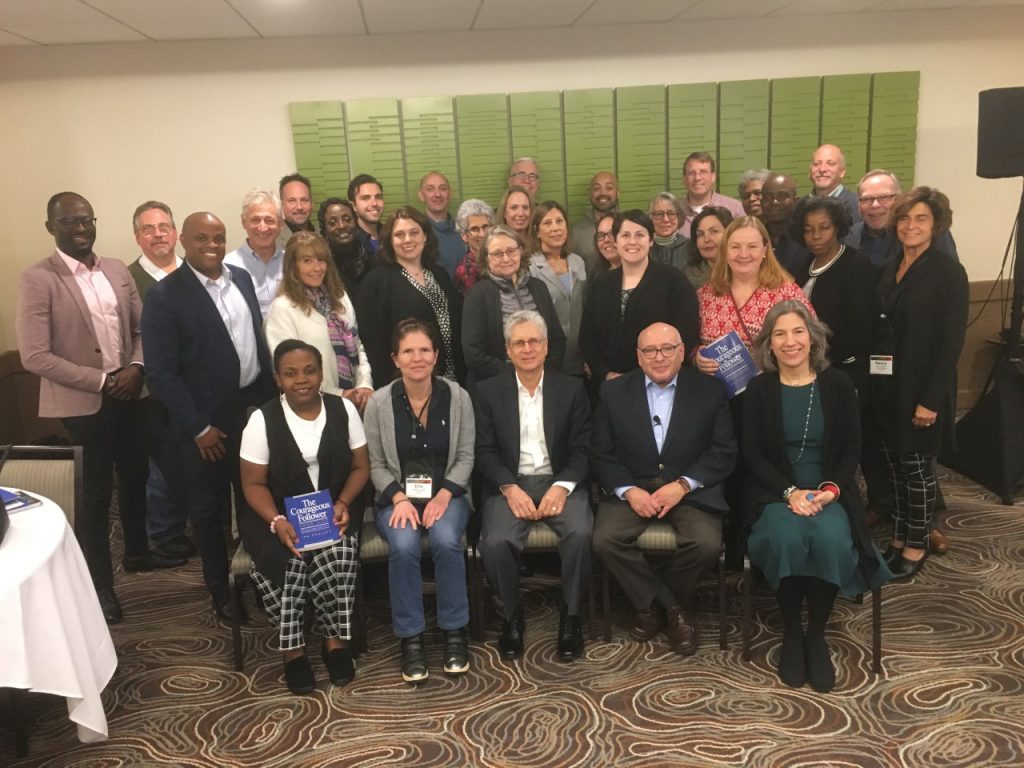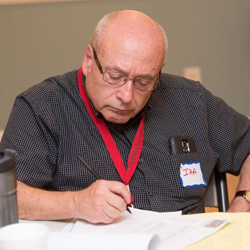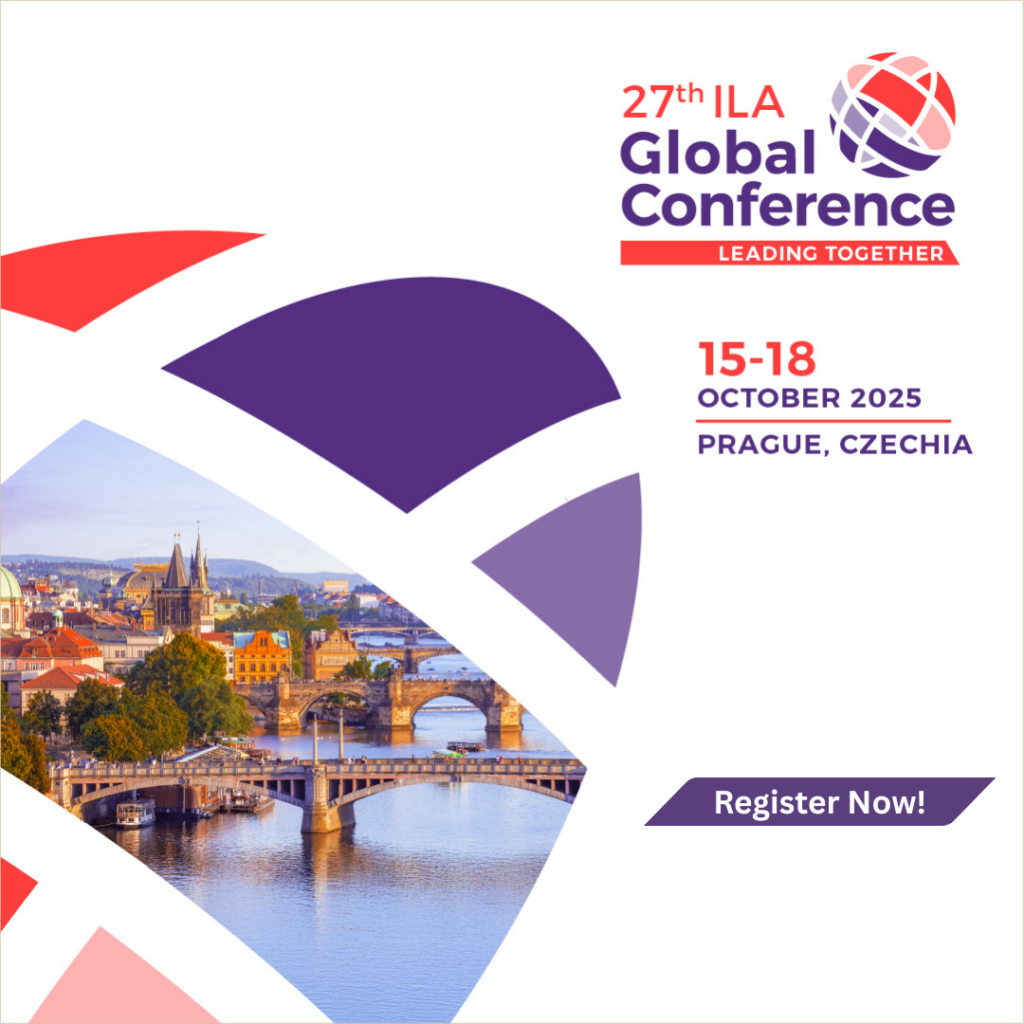
by Ira Chaleff
Visiting Leadership Scholar, Møller Institute, Churchill College, Cambridge University, UK
4 June 2020
Share:
We may never fully learn what forces shaped the callousness of police officer Derek Chauvin as he pressed his weight unremittingly into the neck of George Floyd, an unarmed black man, until the life was squeezed from him. We may never be able to assay the toxic amalgam of cultural racism and personal moral desertification. Nor do we need to in order to ensure that legal justice is done.
The focus of our inquiry and intervention must be on the three fellow police officers, Thao, Keung and Lane, who stood by passively while George Floyd desperately pleaded to breathe and live. Chauvin is the outlier; the three plus deviations from the norm. Thao, Keung and Lane are the rest of the distribution. They are us.
International Leadership Association member, Lorna Blumen, in the 2008 book, The Art of Followership, was an early identifier of the tripartite structure of bullying: victim, perpetrator, and bystander. It is the bystander who should have the greater psychological capacity to interrupt the bullying. But patently this doesn’t always occur. Witness Thao, Keung and Lane. What goes wrong?
On a basic level, the bully will turn on the first bystander who attempts an intervention. The bully, by nature, is intimidating. But it has been observed that when a second bystander joins the intervention, the bully is more likely to back down, and when a third joins in, bullying drops precipitously.
There were three bystanders observing Chauvin. This should have been a classic intervention. Instead it was criminal negligence. Why?
The simplest answer is lack of courage. Really? They are law enforcement officers who need courage to face danger every day. That takes physical courage. Their fatal deficit was of social courage.
Can social courage be taught? Absolutely.
The clearest example with forty years of proof comes from the aviation industry. Half a century ago, there were a rash of disastrous airplane crashes. In almost all cases, the black box recordings and survivor interviews documented an unwillingness by crew to speak assertively to correct an error being made by the ranking officer, the Captain. The turning point in outcomes occurred when all on board personnel were put through the Crew Resource Management program that included simulations and protocols for resolutely warning the captain of error, and relieving the captain of command if needed. The safety record ever since has improved dramatically.
This is one of many examples that demonstrate that practicum, hands on role plays, rehearsals to respond to anticipatable classes of situations, override intimidation to speak up in the face of danger, whether caused by a legitimate authority like a captain, or by an illegitimate authority like a bully.
There is currently a program being conducted in Florida called EPIC: Ethical Policing Is Courageous. EPIC draws on the airline industry experience and puts law enforcement officers through realistic simulations. The bystander officer practices intervening and the offending officer practices accepting the intervention. Individual courage is now supported by organizational practice. All law enforcement communities should urgently weave EPIC type training into their officer development curriculum.
There is a related dynamic that should be understood by police sergeants, lieutenants, and senior executives. “Everyone knows” that two out of three participants in Stanley Milgram’s 1960’s experiments on obedience kept administering what they thought were potentially deadly shocks all the way to 450 volts. But what variation of the basic experiment brought the inappropriate obedience down to practically zero?
The answer is counter cultural. It was when two authority figures began disagreeing about the safety of the experiment in front of the subject. This is considered bad form for managers or parents – arguing in front of the subordinate or child. Instead, it should be understood that, when warranted, open moral conflict between authority figures saves lives. Breaking the dangerous current norm should be part of the role play curriculum. We need to put safety at the center of our values where it can override inappropriately upholding the face of authority.
We need to put safety at the center of our values where it can override inappropriately upholding the face of authority.
Of course, in the George Floyd case there is an even deeper social norm operating: the belief that black men are mortally dangerous. This belief runs as deep as the centuries of brutal enslavement, extra judicial killing, legal and illegal apartheid, massively disproportionate incarceration and economic disadvantage. It permeates the marrow of society, and therefore of law enforcement culture, whether officers are white, Latino or black. What to do?
This must be the focus of a national conversation. And it must not start with “I don’t care what color your skin is. I treat everyone equally.” It must start with authenticity, which is at the heart of true leadership, followership, and partnership.
I co-lead a chapter of the racial healing organization, Coming To The Table, which refers to Martin Luther King’s dream that one day we will all sit at the table of brotherhood. A structured “circle process” is used with rules for deep listening that provide the safety for authenticity. While not using these words, in essence we are making it safe to say “I am white and I see ways in which my whiteness gives me privilege in this society and contributes to your pain” or “I am black and I find it difficult to let white folk learn how careful I am when around them, knowing if I relax my guard I could be killed.” This authenticity allows us to witness and at least momentarily inhabit the other’s world and change our relationship to it.
We need to apply processes like these in the law enforcement community. At one point in recent history, the US military had the best record of integrating black and white military personnel, when civilian society lagged behind. Instead of seeking to “fix” law enforcement culture, let it proudly set the goal for itself to become the nation’s model for a new generation of Americans. The nearly universal rejection by the law enforcement community of the killing of George Floyd is an opening. Let’s use our knowledge of leadership, followership, and group healing to pursue the potential in that opening.

Graduation group from the Courageous Follower Train the Trainer program at the ILA 2019 Global Conference

Ira Chaleff is a Visiting Leadership Scholar at the Moller Institute, Churchill College, Cambridge University, and a former board member of the International Leadership Association. He is the founder of ILA’s Followership Learning Community and co-founder and co-facilitator of the Northern Shenandoah Valley chapter of Coming To The Table. www.irachaleff.com


